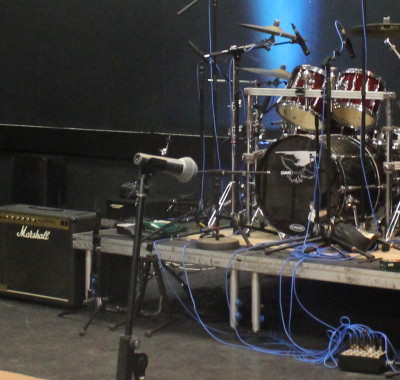There has been a 40% drop in live performance revenue at venues within the Sydney CBD lockout area according to figures released today by APRA AMCOS through the Live Music Office.
The data also shows a 19% decrease in attendance figures at nightclubs and dance venues since the lockout precinct was introduced in 2014.
APRA AMCOS analysed its licensing revenue for the period 1 February 2013 to 31 January 2015, and saw additional decreases in the value of fees collected from licence holders within the Sydney CBD Plan of Management lockout area:
Venues with a Live Artist Performance licence – All premises
- 40% overall decline in the value of door charge receipts
- 15% overall decrease in the value of venue expenditure on live artist performers
Venues with a Live Artist Performance licence – Hotels, bars and nightclubs
- 32% decrease in the value of door charge receipts
- 17% decrease in the value of venue expenditure on live artist performers
Venues with a Recorded Music for Dance Use licence – All premises
- 19% decrease in attendance figures across all venues
The APRA AMCOS licence fee for Live Artist Performances is based on a percentage of the venue’s expenditure on live artist performers and a percentage of any ticket charges. The APRA AMCOS licence fee for Recorded Music for Dance Use is based on attendance figures.
APRA AMCOS reassesses the value of a venue’s licence annually on the anniversary of the licence coming into effect. Accordingly, the full impact of the Sydney CBD lockout will be reflected in the organisation’s data post February 2016.
Live Music Office Policy Director John Wardle said that the figures released today show that the lockout is having a negative effect on the live music industry.
“There are important measures that need to be put into place to reduce the impacts to the live music sector that are now being experienced in Sydney, whilst still ensuring public safety is paramount,” said John.
John cites the recent commitment by the South Australian government to review live music regulation best practice and red tape reduction as the kind of response the industry needs.
“The South Australian government recognises the cultural and economic value that venues and artists provide, and its review will help government agencies to reach consensus and deliver common sense policies.”
To ensure sustainability and better regulation within the live music sector, the Live Music Office calls for:
New South Wales
- Exemptions from the 1.30am lockout for live music venues
- Exemptions from the liquor freeze for venues presenting live entertainment, including theatres, galleries, and live music venues following the Melbourne precedent
- Development of coordinated low risk regulations for live music and performance venues
- Establishment of a live music regulation roundtable across government agencies and the live music sector
- A comprehensive live music regulation best practice and red tape reduction review
Queensland
- Introduction of a reference in the legislation objectives to recognise the live music industry, as is in place in NSW, SA, WA and VIC
- Capacity in legislation for exemptions from the 1am lockout for live music venues
- Capacity in legislation for live music venues to trade up until 3am statewide
- Development of coordinated low risk regulations for live music and performance venues
- Development of low risk criteria for live music venues, as has been done in Victoria with the exemptions for 200 capacity live music venues from the 1am liquor freeze in Melbourne
- Establishing a live music regulation roundtable across government agencies and the live music sector
- A comprehensive live music regulation best practice and red tape reduction review
South Australia
- That government work with the November 2015 Late Night Trading Code and evaluate its effectiveness first, before introducing any further trading restrictions
- Development of coordinated low risk regulations for live music and performance venues
Australian Capital Territory
- Introduction of a reference in the legislation objectives to recognise the live music industry, as is in place in NSW, SA, WA and VIC
- In November 2015, the Live Music Office and MusicACT submitted Cool Little Capital to the ACT government. This report tables 25 actions in a connected, forward looking live music strategy to support music sector development in the Canberra region
- Development of coordinated low risk regulations for live music and performance venues
- Establishing a live music regulation roundtable across government agencies and the live music sector
- A comprehensive live music regulation best practice and red tape reduction review
